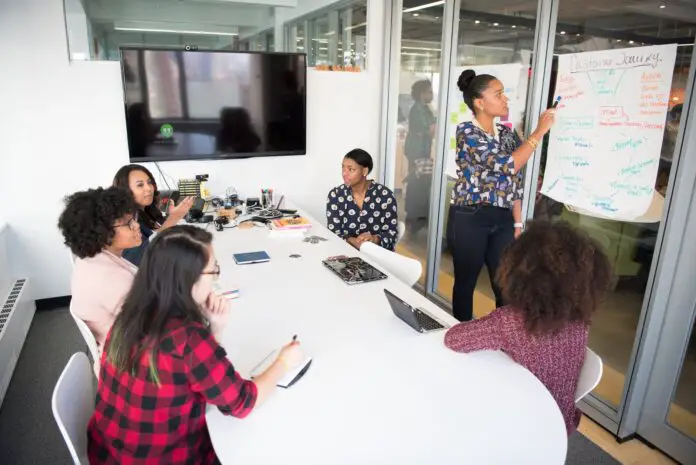Academic conferences offer a unique opportunity for scholars and professionals to engage with their peers, stay abreast of the latest research, and network within their respective fields. However, attending a conference can be overwhelming without a clear plan. In this article, iLovePhD will present the key strategies to help you make the most out of your academic conference experience.
Mastering Academic Conference: A Comprehensive Guide for Optimal Engagement and Networking
1. Set Clear Goals
Before the conference, define your objectives. Whether it’s learning about recent developments in your field, presenting your research, or expanding your professional network, having clear goals will guide your activities and interactions.
2. Prepare in Advance
Familiarize yourself with the conference schedule, keynote speakers, and topics of interest. Plan your itinerary to ensure you don’t miss sessions or networking opportunities. Preparing questions for speakers can enhance your engagement during Q&A sessions.
3. Engage in Sessions
Actively participate in sessions by asking questions and contributing to discussions. Take notes on key points and insights. This not only helps you retain information but also provides valuable content for post-conference reflection.
4. Network Strategically
Networking is a crucial aspect of academic conferences. Identify key individuals you want to connect with and make an effort to attend relevant social events. Be approachable, exchange business cards, and consider connecting on professional platforms like LinkedIn.
5. Attend Social Events – Academic Conference
Don’t underestimate the power of socializing. Attend receptions, dinners, or informal gatherings to meet fellow attendees in a more relaxed setting. Building personal connections can lead to collaborative opportunities and a broader professional support network.
6. Utilize Technology
Leverage conference apps, social media, and other digital tools to stay connected and informed. Engaging in online discussions, using event hashtags, and sharing your own insights can enhance your visibility and facilitate networking.
7. Present Your Research Effectively:
If you’re presenting, practice your presentation and anticipate potential questions. Be concise and clear to engage your audience. Consider creating visually appealing slides that complement your talk and facilitate understanding.
8. Collect and Organize Information
With the influx of information at conferences, it’s essential to organize your materials. Collect handouts, business cards, and any relevant documents. Consider using digital tools to catalog and annotate important information for easy retrieval later.
9. Reflect and Follow-Up
After the conference, take time to reflect on your experiences. Review your notes, revisit conference materials, and consider how the insights gained can be applied to your work. Follow up with new contacts promptly, expressing gratitude and reinforcing connections.
10. Stay Connected Post-Conference
Keep the momentum going after the conference ends. Stay connected with your new contacts, share your own insights, and contribute to ongoing discussions within your field. This sustained engagement will help you build lasting professional relationships.
Attending an academic conference can be a rewarding experience when approached strategically. By setting clear goals, preparing in advance, actively engaging in sessions, and fostering meaningful connections, you can maximize the value derived from these events. Remember, the conference is not just a venue for learning; it’s an opportunity to contribute, collaborate, and enrich your academic and professional journey.


